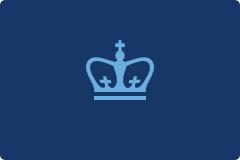Stories from Rikers--in 140 Characters or Less
October 26, 2015


The New York City tech world is a long way from Rikers, the Bronx jail where those accused of crimes await trial. A team of Columbia professors wants to bridge the two with a project aimed at teaching teenagers on Rikers Island how to code and tell stories in a digital age.
Their finished product, RikersBot, launched last week on Twitter. At noon each day, the bot sends out a story, drawing, music or historic tidbit about the jail that was produced and edited over the summer by teens at the jail and a team of Columbia students and professors. The bot will continue tweeting until it runs out of content.
RikersBot is one of several programs offered by the Rikers Education Project, a collaboration of the Columbia Center for Justice and Heyman Center for the Humanities, and funded by the Mellon and Tow foundations. RikersBot got its start when the director of the Center for Justice approached a group of digital activists in the humanities to give programming classes at Rikers. The Center already taught classes in digital music production and writing a business plan, among other subjects, and wanted to expand their offerings.
It sounded like fun to software engineer-turned-Columbia English professor Dennis Tenen, who is a member of the Data Science Institute. Joined by history professors Manan Ahmed at Columbia and Durba Mitra at Fordham, Tenen came up with a plan to teach enough Python that students could build an automated Twitter feed in four classes.

“Instead of the vague, ‘Let’s learn to code’, we thought ‘Let’s tell a story–an algorithmically-told story using Twitter as the medium,’’’ he said.
The first session took place over four weekends in August and included Columbia students with no coding experience. “The classes are set up so that everyone is learning together and exchanging ideas, stories and experiences,” said Cameron Rasmussen, program manager at the Center for Justice and lecturer at the Columbia School of Social Work.
In addition to learning how to declare variables and concatenate strings, the group focused on the writing and editing skills needed to curate tweets for RikersBot. “On the first day of class, the atmosphere was tense,” said Tenen. “By the second class, everyone was mixing, talking and laughing.”
After the last class in August, parents were invited to an informal graduation party at Rikers. “It connects the families back again with the kids and the promise they have,” said Geraldine Downey, a psychology professor at Columbia who directs the Center for Justice.
The organizers are realistic in their expectations for the RikersBot project. It takes time to become proficient at coding. Their hope is that some teens may choose to pursue it when they get out. Technology companies, after all, are more forgiving than most of job candidates without a college degree. At the very least, the classes will give the teenagers skills to list on their resumes and an experience to talk about during an interview, said Tenen.
The next session of four classes will start next semester.
— Kim Martineau